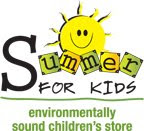
That's simple, it's health. Your health, health of your children, communities and the environment. Baby's skin is more porous and thinner than adults! That means that their skin absorbs things very easily. It's less resistant to bacteria and harmful substances in the environment, especially if it's irritated. Babies sweat less efficiently than the rest of us, so it's harder for them to maintain their inner body temperature. This means that children are at greater risk for pesticide-related health problems than adults. Manual farming and organic practices have a lower carbon footprint as the entire process consumes less fuel and energy and emits fewer greenhouse gases.
Organic clothing uses cotton that is not farmed in the conventional ways. It is grown without synthetic pesticides, herbicides, insecticides, chemical fertilizers or any other chemicals, other safer methods are used to produce the crops. Therefore workers have better working conditions, water quality is not compromised by run-off, and strong healthy soil is built. The end product is a cotton fabric that is toxin free.
Organic cotton is safer, sturdier, and cheaper and it feels great!
Conventionally produced cotton material lasts 10-20 washes before it starts to break down. An organic cotton material lasts for 100 washes or more before it begins to wear down. This is because the cotton fibers in conventionally produced cotton take so much abuse in production because it goes through scouring, bleaching, dying, softeners, formaldehyde spray, and flame and soil retardants before it is even shipped to be cut for patterns.
Organic fabrics are hypoallergenic and absorbs moisture from our bodies in a more efficient way than non organic materials.
Creating a pure, natural environment is a vital decision for a growing number of parents. With our children exposed to pollutants in many aspects of life, choosing organic fibers is another step towards natural and safe living.
Summer For Kids

No comments:
Post a Comment